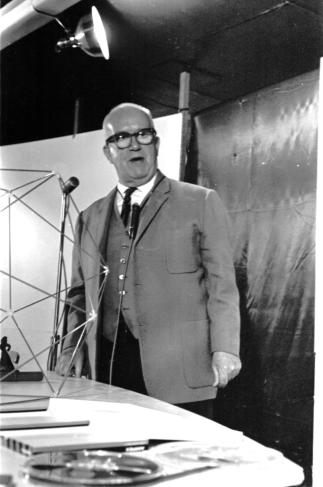Monday, March 1, 1965 • an excerpt from my notes for that two-week workshop.
Lecture by R. Buckminster Fuller
We should pursue,
the tantalizingly almost realizable,
in the physical and mental universe that is possibly uncomprehended,
and then test through experience the validity of these thoughts.
These months manifesting the proximity of science and the humanities.
•
The artist's behavior might be the clue to increased
efficiency in the world.
•
We can make it possible to stay in the universe because
of this knowledge.
Fred Hoyle:
1. astronomy and
2. philosophical articulation
In the Saturday Review of two or three months ago,
maybe at Christmas time,
Hoyle had an article that gave 23 reasons why politics
were irrelevant.
Scientists, a few years ago came to the conclusion that if
there were planets in other solar systems that were
inhabited then probably they were widespread. Are
inhabitable planets accidents or are they common.
Planets now are being found by radio telescopes.
Let's assume there are hundreds of millions of planets.
Then what?
Therefore we should what?
Let's make a simple comparison or analogy.
The maple tree has many seeds and each has a small chance
of survival. Yet there are lots of maple trees around.
The percentage of each chemical element in the universe
diminishes with higher atomic numbers.
Hydrogen, number one, is the most abundant. . . Helium is
second most abundant and so on.
Every local system loses energy.
That's called entropy.
But nothing is really lost, we know better now,
energy in one system only goes to another system,
really we just have transformations.
transformations
transformations
transformations

photo by Dale Carlson
Design at Southern Illinois University
continued on next page





















